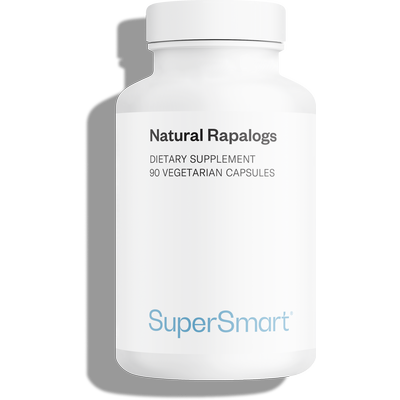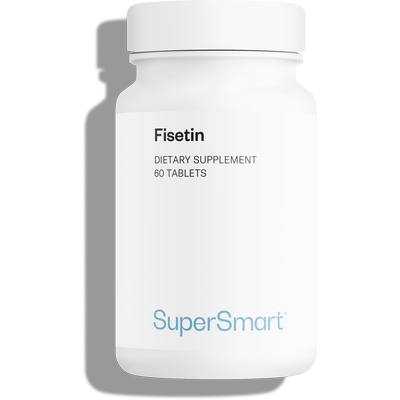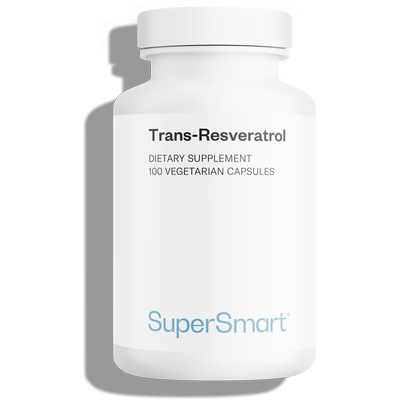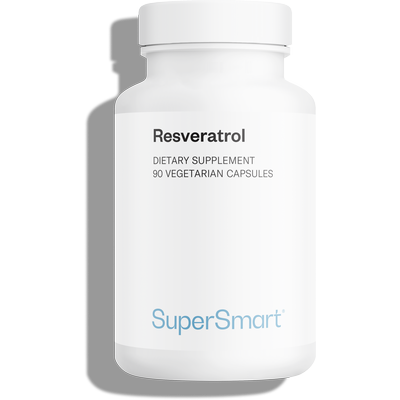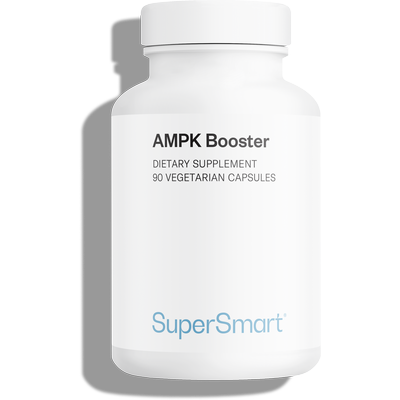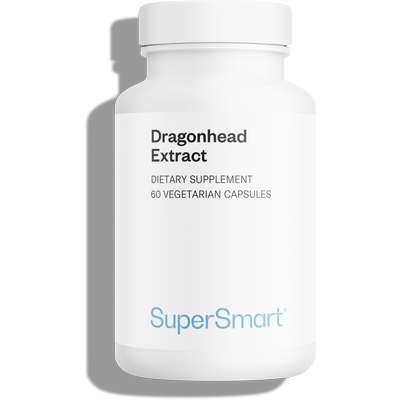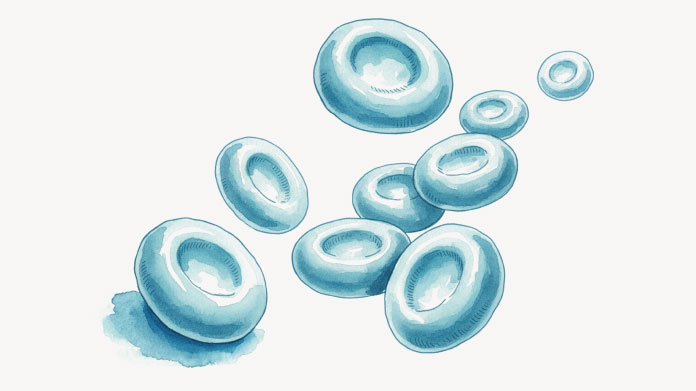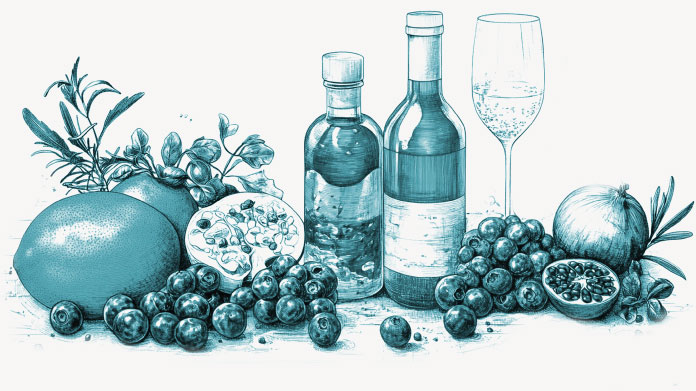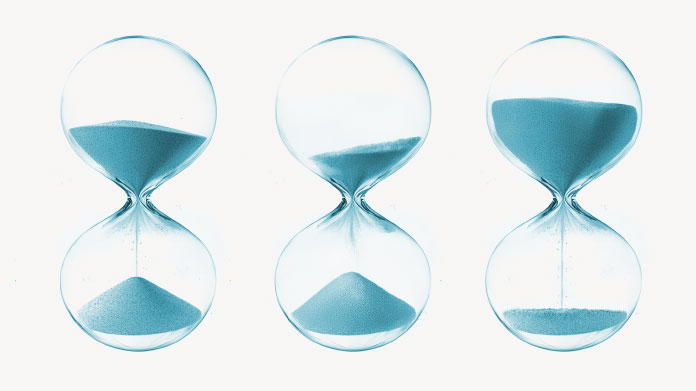Intermittent fasting 16/8: definition, benefits, menus
Very much in vogue, intermittent fasting helps you lose weight, eliminates toxins and holds back ageing. What exactly is the 16/8 method? What should you eat in between fasting?
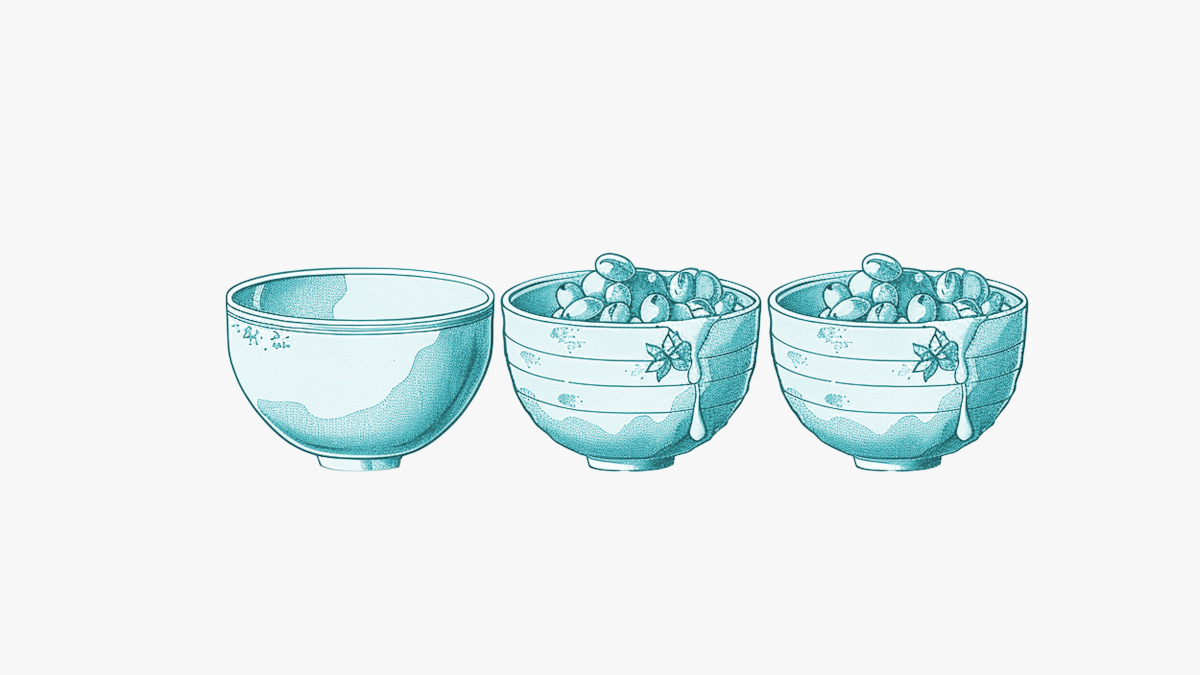
Intermittent fasting and the 16/8 method: definition
Intermittent fasting consists of alternating periods of eating and non-eating. It is less restrictive than strict fasting, which requires you to stop eating for extended periods, but delivers the same health benefits.
There are several ways in which to put intermittent fasting into practise: some people choose to fast on one day of the week (for 24 hours continuously), others fast every other day. There’s also the 5:2 diet, in which you eat normally for 5 days of the week, and drastically reduce your calorie intake for the other 2 days ...
One of the most common and convenient approaches, however, is the 16/8 method, which consists of alternating 16 hours of fasting with 8 hours of eating normally. For example, you have your last meal of the day at 8pm and then eat nothing more till noon the next day (a total of 16 hours of fasting, repeated every day) (1).
Benefits of intermittent fasting
Intermittent fasting offers a number of health benefits:
- once the body’s glycogen reserves have been used up during the fasting period, it enters into a state of ketosis, drawing its energy from adipose tissue. Intermittent fasting thus helps you to burn fat, and slim down and so helps prevents obesity;
- with no energy required for digestion, the body can concentrate its resources on a thorough detox and on increasing cell regeneration. It can, in particular, produce more growth hormones, reduce its insulin levels, acquire more energy, develop stronger immunity and benefit from more restorative sleep;
- intermittent fasting also stimulates autophagy, a process in which cells ‘self-devour’. To survive the nutritional stress caused by the absence of food, cells are actually able to liquidate and recycle their own constituents by cleaning out dysfunctional or unnecessary material. This natural, cellular self-cleansing process slows down ageing by reducing the accumulation of macromolecular damage. Intermittent fasting thus appears to offer important anti-ageing benefits (2-6).
Risks of such calorie restriction
This type of partial fasting does not, in principle, pose any risks for healthy individuals. Just be aware that if practised over the longer term, it can sometimes cause:
- headaches;
- muscle wasting;
- bad breath;
- and it may have a negative effect on your social life (having to decline invitations to restaurants, drinks, etc.). The less restrictive 16/8 method mitigates this downside.
Tips for implementing 16/8 intermittent fasting
In terms of following the 16/8 method and deciding on the right timing of your fasting and eating periods, you simply need to find what works best for you. Would you prefer to stop eating at 8pm and start again at noon the next day, or stop at 4pm so that you can eat breakfast at 8am? It’s your choice whether to forego dinner (and go to bed slightly peckish) or skip breakfast (and start your day with an empty stomach).
We’d suggest building up progressively, by practising intermittent fasting on just one or two days of the week to start with. It should gradually become a habit that you can then extend to the whole week.
However you choose to do it, make sure you drink plenty of water (at least 2 litres a day) during your fasting periods so that you don’t become dehydrated. Avoid sugary or alcoholic drinks and stick to water or tea.
During your eating periods, adopt a sensible, healthy approach so that you don’t undo all the advantages you gain from fasting. During your ‘8 hours of food’, eat three meals, or two meals and two snacks. Choose unprocessed foods whenever possible: whole fruits and vegetables, whole grains, lean protein, dairy products, and some carbohydrates and healthy fats.
Make sure, in particular, that you eat foods rich in mineral salts and trace-elements to prevent potassium deficiency, which causes chills and dizziness.
Children, pregnant women, and those suffering from anorexia, heart problems, diabetes or any serious illness or eating disorder, should not fast, or should at the very least, seek medical advice before doing so.
Menu examples for the 16/8 method
Here are some healthy menu suggestions for your 8-hour eating periods:
Example no. 1, if you’re planning on retaining dinner
Lunch
- ground beef, basmati rice, crudités, goat’s milk yogurt;
- or egg, chickpeas, green beans and an apple.
Snack at 4pm
- fromage blanc, almonds, peach;
- or dark chocolate and a light compote;
Dinner at 8pm
- smoked salmon, courgette and potato puree, two fromage frais;
- or tofu, pumpkin seeds, tomato coulis, kidney beans and quinoa.
Example no. 2, if you’re planning to eat breakfast
Breakfast at 8am
- fromage blanc, oat flakes, cinnamon, goji berries;
- or an apple and granary bread (lightly-buttered);
- you could also have some dark chocolate and fruit at 10am.
Lunch
- slices of duck, mixed rice, stir-fried carrots, fresh fruit salad;
- or quinoa, chickpeas, carrots, onions, courgettes.
Snack at 4pm
- almond puree on wholewheat bread;
- or two or three prunes.
To prevent deficiencies, you could also take dietary supplements containing magnesium, vitamin D, iron (if you have been diagnosed as deficient) and omega-3. And did you know that there are specific supplements that can help to reproduce or boost some of the anti-ageing effects of fasting?
3 supplements that mimic the effects of fasting
Many people, whether they’re advocates of fasting or not, use natural-source products designed to reproduce the benefits of calorie restriction. This allows them to continue to eat, or at least to cut down their food intake less drastically. These compounds can also help to boost the effects of 16/8 intermittent fasting:
Dragonhead
Moldavian balm or Dracocephalum moldavica, better known as dragonhead, is a plant used in traditional Uyghur medicine.
Rich in terpenoids, flavonoids, steroids and glycosides, dragonhead seems to help activate AMPK, like calorie restriction (7). AMPK, or 5' AMP-activated protein kinase, is a key enzyme of energy metabolism, involved in regulating intracellular systems and longevity (8-9).
Dragonhead extract thus appears to produce similar effects to those of fasting (try, for example, DragonHead Extract, made from dragonhead leaves, the plant’s most active part).
Resveratrol
Very popular since the advent of the French Paradox, which identified a link between good cardiovascular health and the consumption of wine and animal fats, resveratrol is a polyphenol naturally present in grapes. It has been widely studied for many years for its cardioprotective benefits.
Resveratrol, like intermittent fasting, may also stimulate the Sir2 protein, associated with longevity. A study conducted by Harvard Medical School suggested this compound could increase the life expectancy in certain yeast strains by as much as 70% (10-11).
Welcome news then, for those who regularly supplement with resveratrol (with products such as the classic Resveratrol, or Trans-Resveratrol, the most popular form on the market).
Fisetin
As mentioned above, AMPK promotes cell division and has a positive effect on cell lifespan (12).
Interestingly, several studies have demonstrated that AMPK production can be boosted in a number of ways:
- by being physically active;
- by following calorie restriction (particularly fasting);
- and by consuming foods containing specific molecules, such as fisetin, found at low levels in mangoes and strawberries for example (13). That’s why some people choose to increase their fisetin intake with supplements. Even better, fisetin can be combined with other compounds that affect AMPK, such as berberine and gypenosides (all of which are found in the targeted synergistic formulation AMPK Booster).
You can also find fisetin together with trans-resveratrol, amongst other compounds, in certain cutting-edge formulations combining ‘rapalogs’. These compounds are being studied for their ability to combat cell senescence and extend lifespan in certain worm and mammal species (the best ‘rapalogs’ can be found in the product Natural Rapalogs).
SUPERSMART ADVICE
References
- Welton S, Minty R, O'Driscoll T, et al. Intermittent fasting and weight loss: Systematic review. Can Fam Physician. 2020;66(2):117-125.
- Anton S, Ezzati A, Witt D, McLaren C, Vial P. The effects of intermittent fasting regimens in middle-age and older adults: Current state of evidence. Exp Gerontol. 2021 Dec;156:111617. doi: 10.1016/j.exger.2021.111617. Epub 2021 Oct 30. PMID: 34728336.
- Stockman MC, Thomas D, Burke J, Apovian CM. Intermittent Fasting: Is the Wait Worth the Weight?. Curr Obes Rep. 2018;7(2):172-185. doi:10.1007/s13679-018-0308-
- Longo VD, Di Tano M, Mattson MP, Guidi N. Intermittent and periodic fasting, longevity and disease. Nat Aging. 2021;1(1):47-59. doi:10.1038/s43587-020-00013-3
- Domaszewski P, Konieczny M, Pakosz P, Bączkowicz D, Sadowska-Krępa E. Effect of a Six-Week Intermittent Fasting Intervention Program on the Composition of the Human Body in Women over 60 Years of Age. Int J Environ Res Public Health. 2020;17(11):4138. Published 2020 Jun 10. doi:10.3390/ijerph17114138
- Mattson MP, Longo VD, Harvie M. Impact of intermittent fasting on health and disease processes. Ageing Res Rev. 2017;39:46-58. doi:10.1016/j.arr.2016.10.005
- ZHAO, Yunli, YUAN, Yong, MA, Xiaoli, et al. Study on Protective Mechanism of Dracocephalum moldavica Total Flavonoids against Myocardial Ischemia-reperfusion Injury in Rats Based on AMPK/SIRT 1/PGC-1α Signaling Pathway. China Pharmacy, 2021, p. 278-283.
- Bujak AL, Crane JD, Lally JS, et al. AMPK activation of muscle autophagy prevents fasting-induced hypoglycemia and myopathy during aging. Cell Metab. 2015;21(6):883-890. doi:10.1016/j.cmet.2015.05.016
- Weir HJ, Yao P, Huynh FK, Escoubas CC, Goncalves RL, Burkewitz K, Laboy R, Hirschey MD, Mair WB. Dietary Restriction and AMPK Increase Lifespan via Mitochondrial Network and Peroxisome Remodeling. Cell Metab. 2017 Dec 5;26(6):884-896.e5. doi: 10.1016/j.cmet.2017.09.024. Epub 2017 Oct 26. PMID: 29107506; PMCID: PMC5718936.
- KODALI, Maheedhar, PARIHAR, Vipan K., HATTIANGADY, Bharathi, et al. Resveratrol prevents age-related memory and mood dysfunction with increased hippocampal neurogenesis and microvasculature and reduced glial activation. Scientific Reports, 2015, vol. 5, no 1, p. 1-16.
- MAROON, Joseph. The longevity factor: how resveratrol and red wine activate genes for a longer and healthier life. Simon and Schuster, 2008.
- BURKEWITZ, Kristopher, WEIR, Heather JM, et MAIR, William B. AMPK as a pro-longevity target. AMP-activated Protein Kinase, 2016, p. 227-256.
- Khan N, Syed DN, Ahmad N, Mukhtar H. Fisetin: a dietary antioxidant for health promotion. Antioxid Redox Signal. 2013;19(2):151-162. doi:10.1089/ars.2012.4901
2 Days
this company and its products are…
this company and its products are perfect: I have been their customer for three years , prices are reasonable for the high quality they offer , the products are of very good quality not just plainly "normal" , delivery is quite fast. we are very satisfied with them.
Gabriel Diacakis
2 Days
TOP service TOP products will buy again…
TOP service TOP products will buy again and again
PINOTTI Giorgio
5 Days
Trustworthy company with tested products
Trustworthy company with tested products
Trusted
9 Days
Efficiency and speed
Efficiency and speed
Cuccie
11 Days
GOOD BRAND IN FOOD COMPLEMENTS
GOOD BRAND IN FOOD COMPLEMENTS - SERIOUS WITH GOOD DOCUMENTS AND DETAILS SCIENTIST. AND SERIOUS HONNEST COMMERZIALISATION. I HAVE TRUST IN THEIR PRODUCTS.
FENOGLIO Guy
12 Days
Very good experience
Very good experience, the products arrived in time, in perfect condition and are good quality. Thank you.
GABI TIRCOCI
18 Days
very good expereince
very good expereince
Jelena Đaković
18 Days
Very good products.
Very good products.
Agnes BENDSAK
20 Days
Just OK
Just OK, ordering from company for many years and being safisfied
Lynn Mae
20 Days
Recomendo
Produtos encomendados são recebidos atempadamente e de acordo com o anunciado! Muito satisfeita!
Carla Sofia
21 Days
Everything is great!
Everything is great!
Jonas
26 Days
The delivery was fast and the product…
The delivery was fast and the product is great
SOMMARIVA Gianni
27 Days
Great service and lots of information
Great service and lots of information
Gabi
30 Days
Service Satisfaction
I’m satisfied with the service; it fulfilled what it set out to do.
Anfhony Abreu
33 Days
Original product and fast delivery
Original product and fast delivery. I haven't started it yet, but will do soon.
Vincenza Catania
of experience
your money back
##montant## purchase


